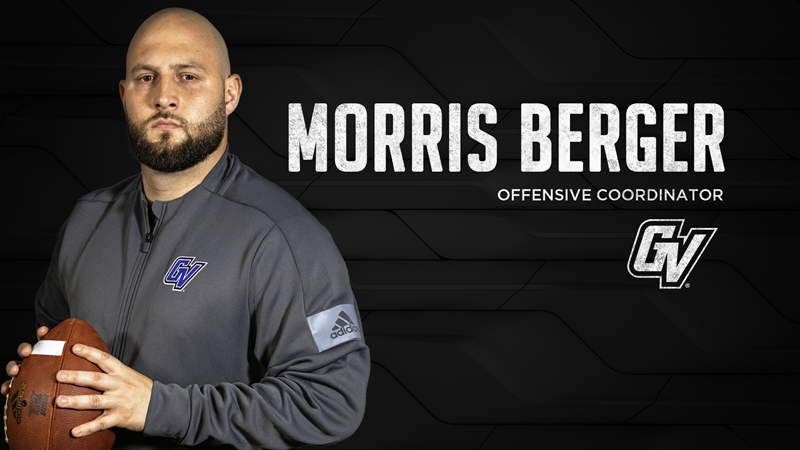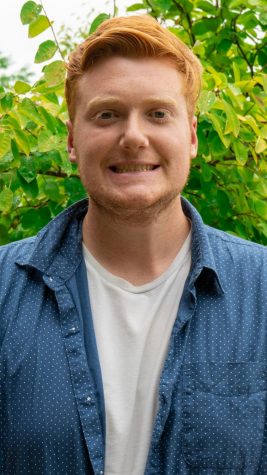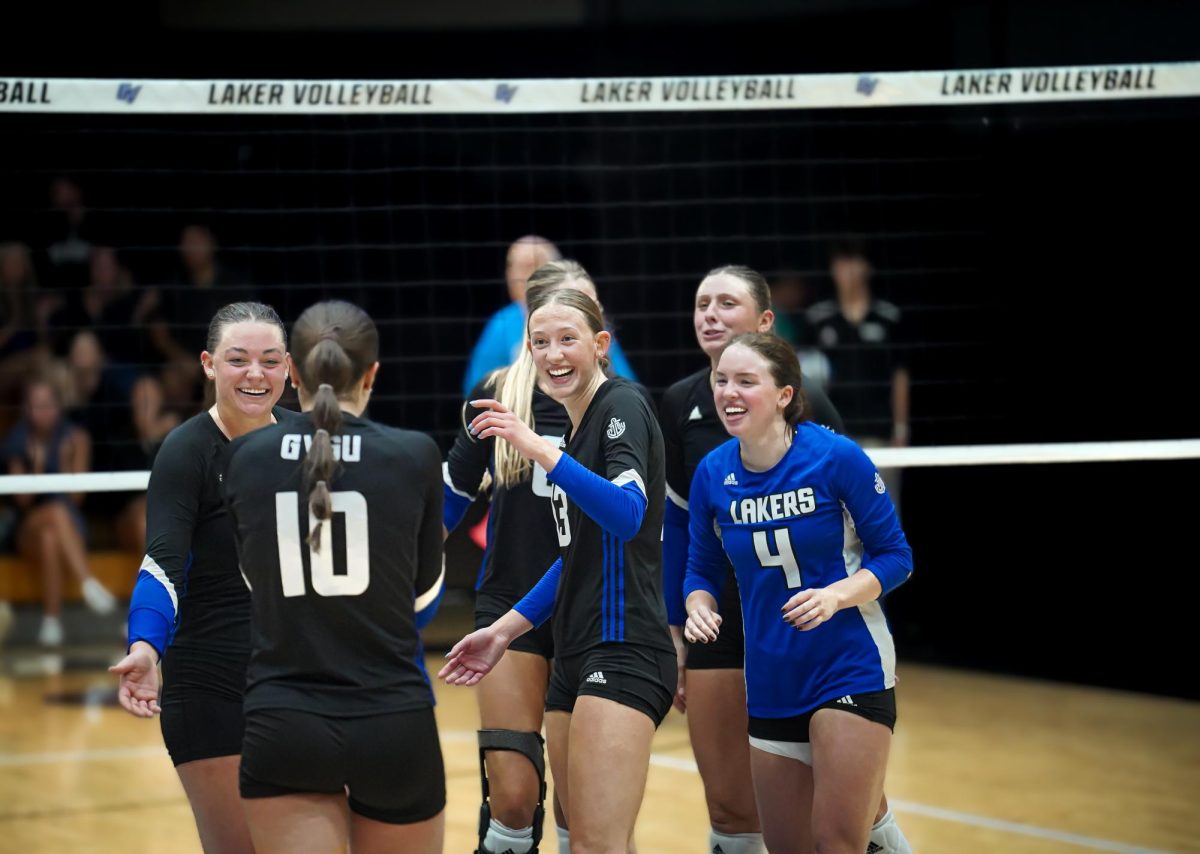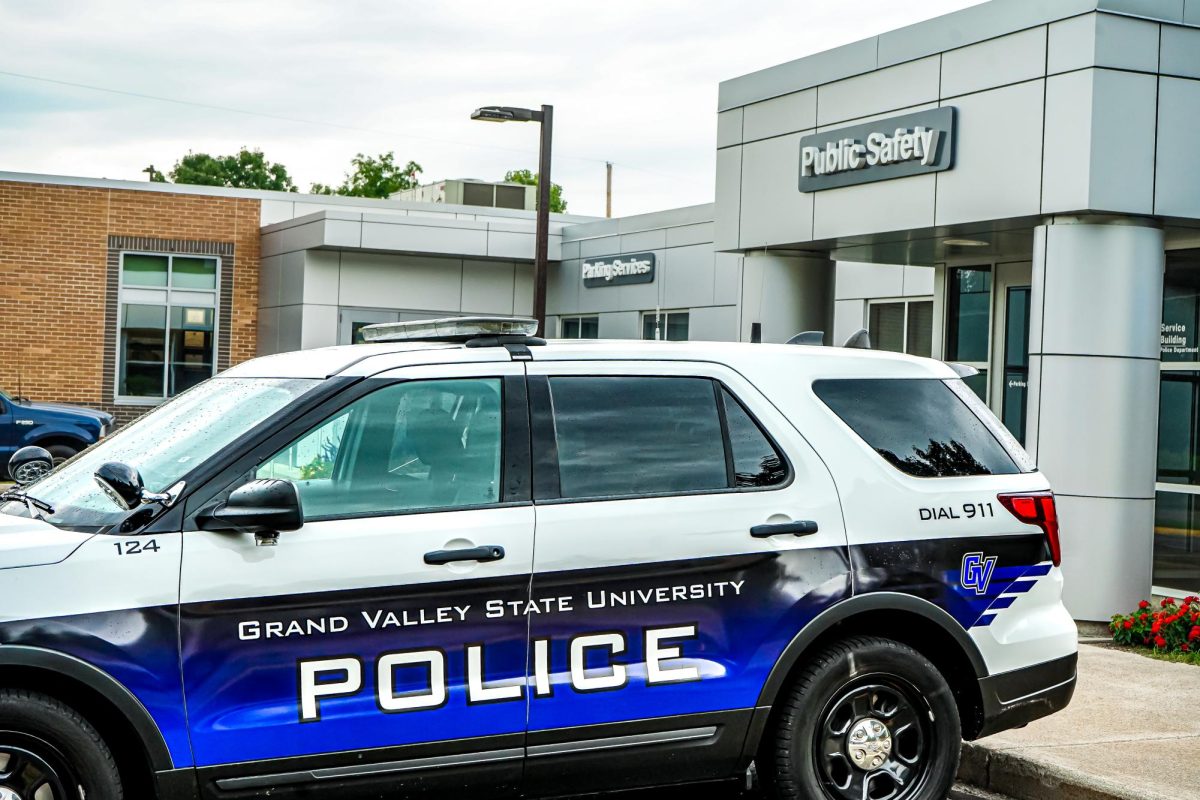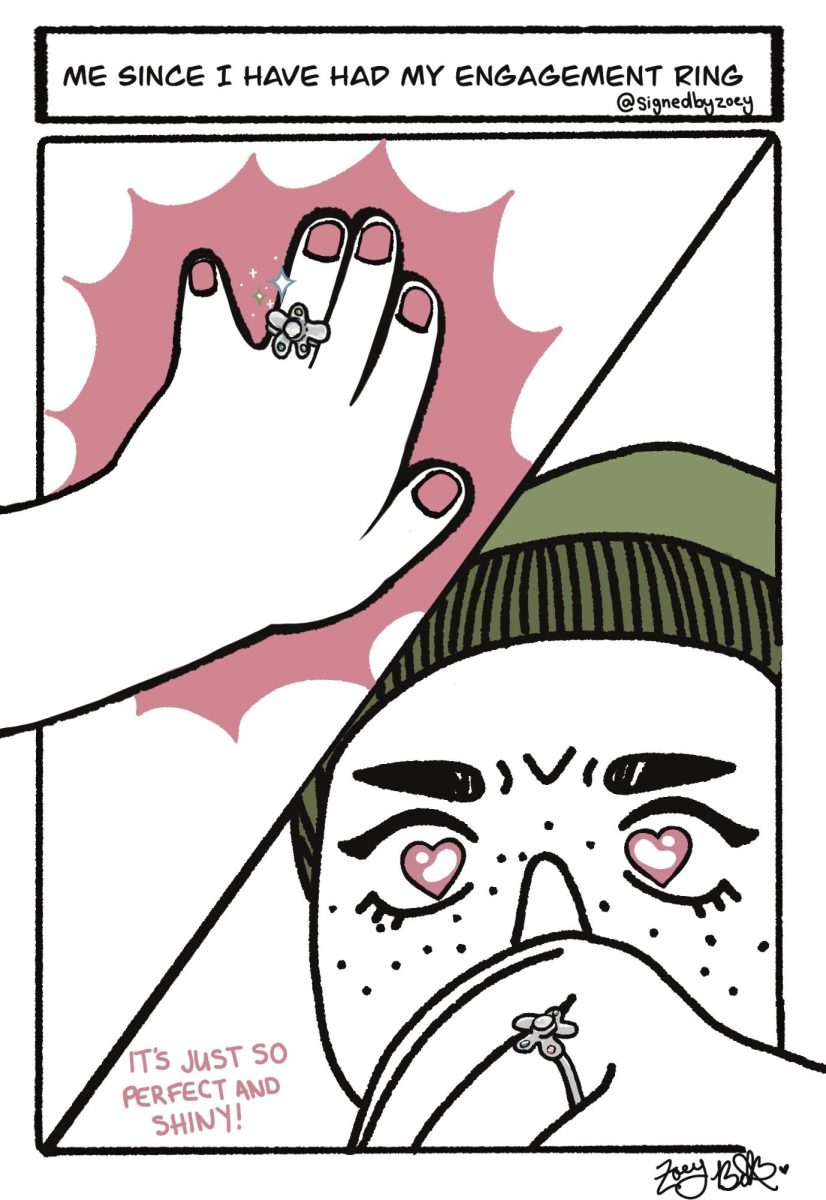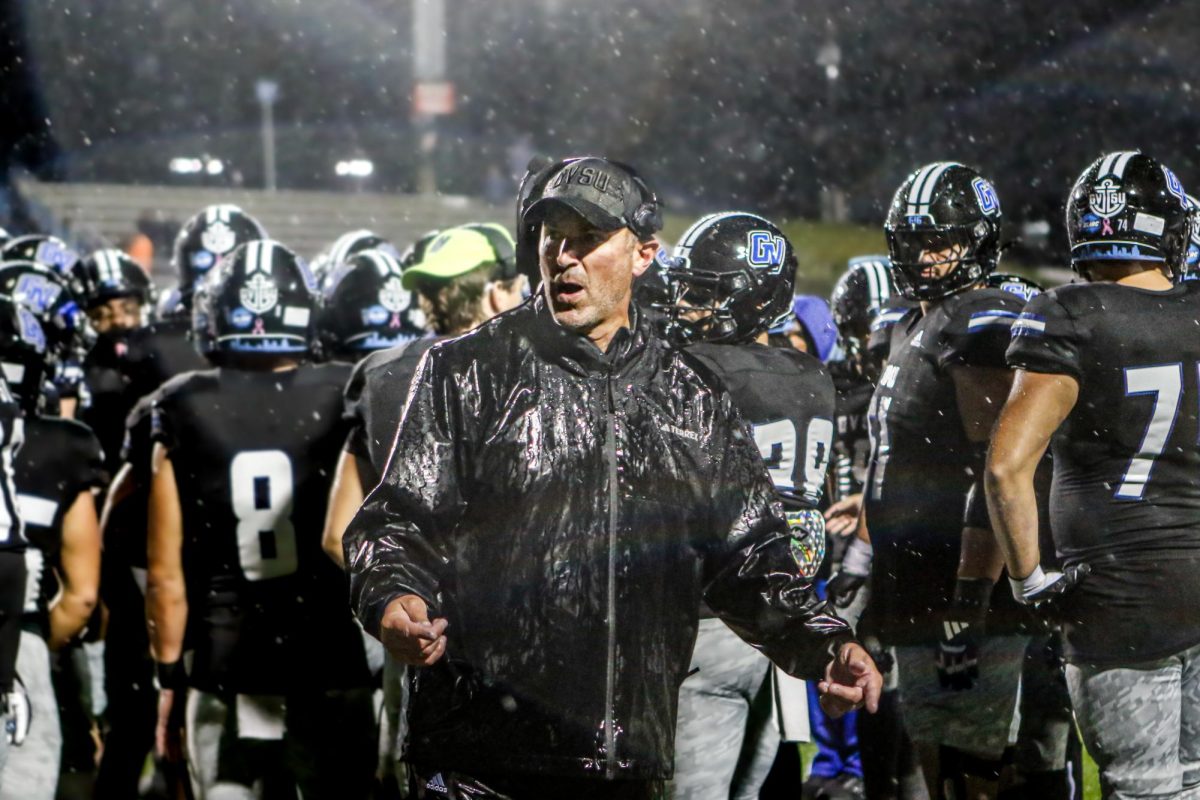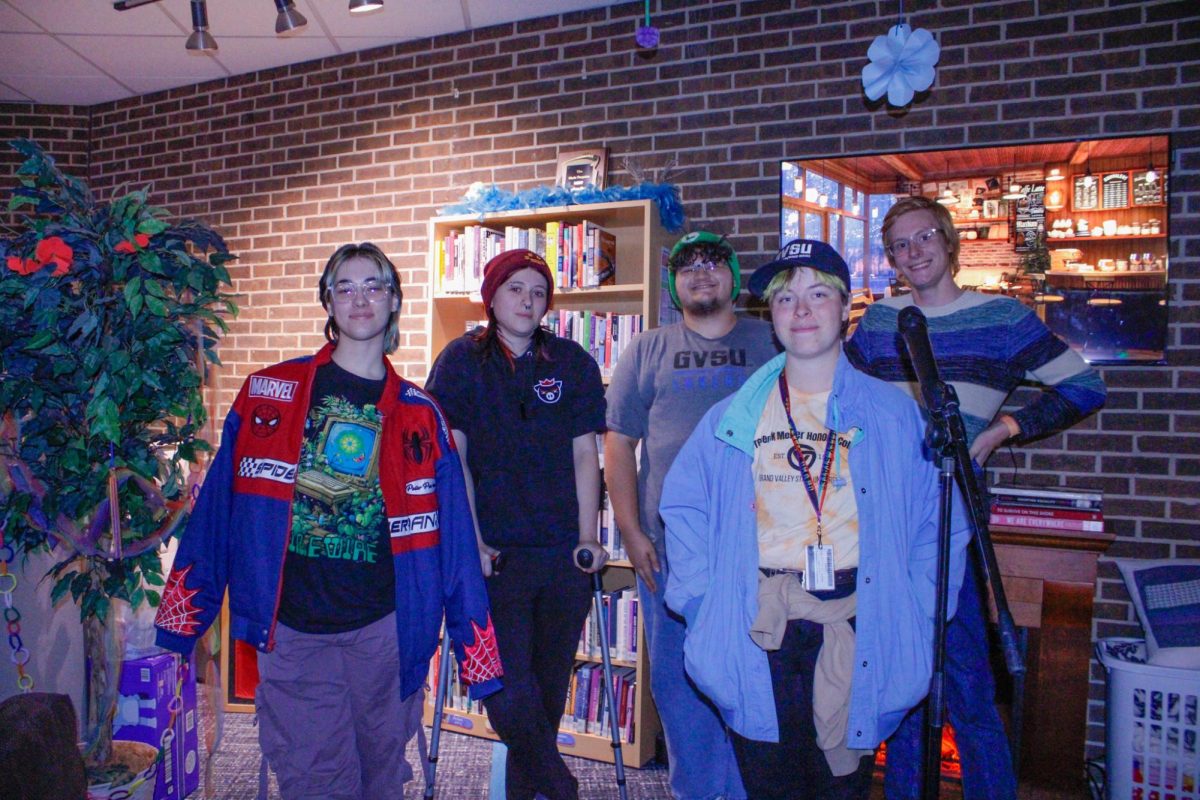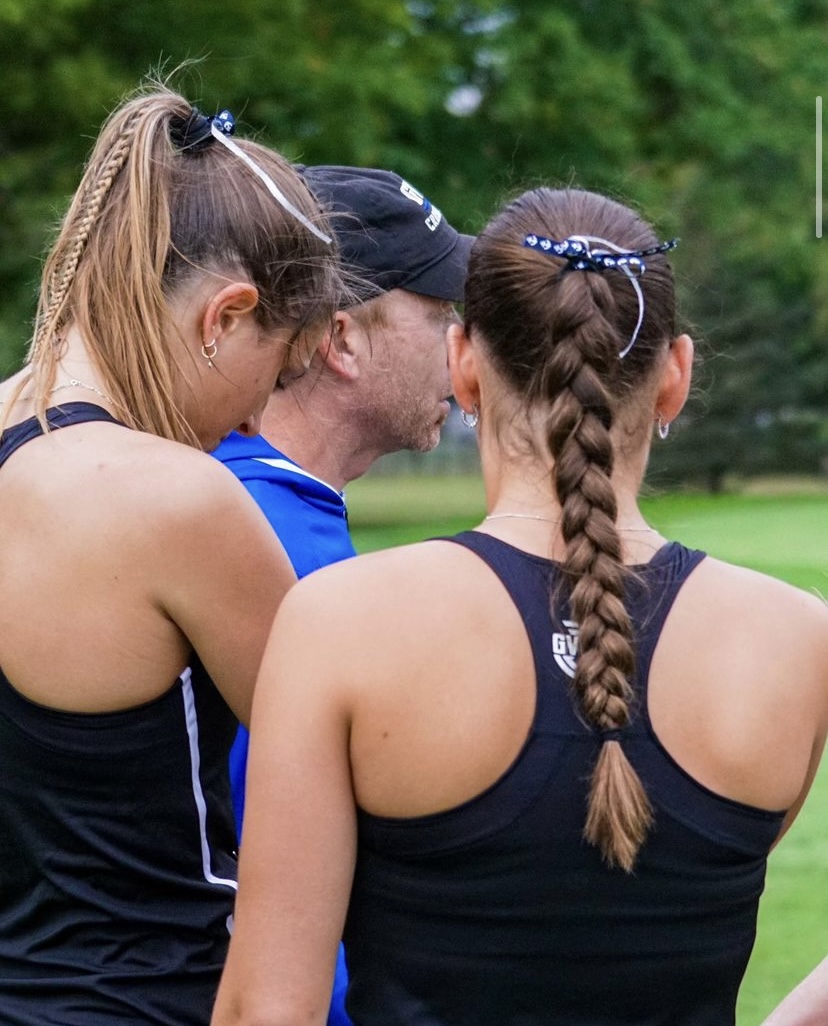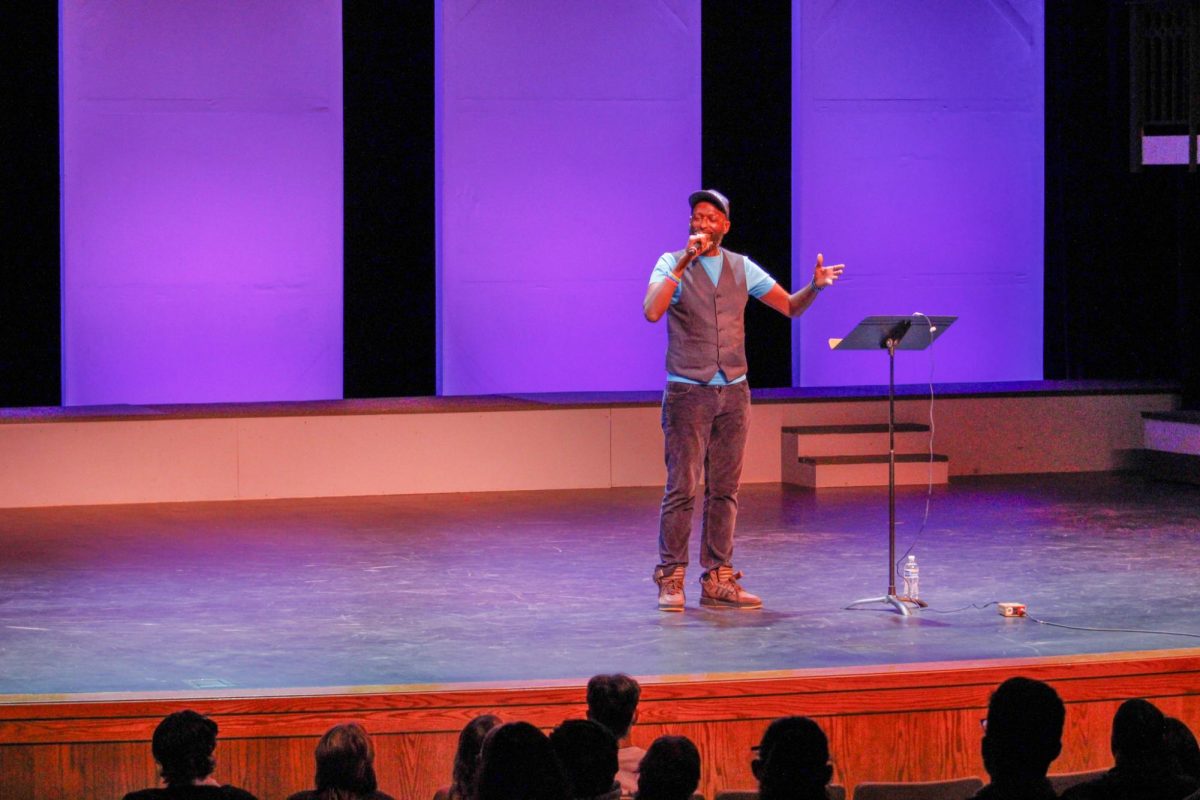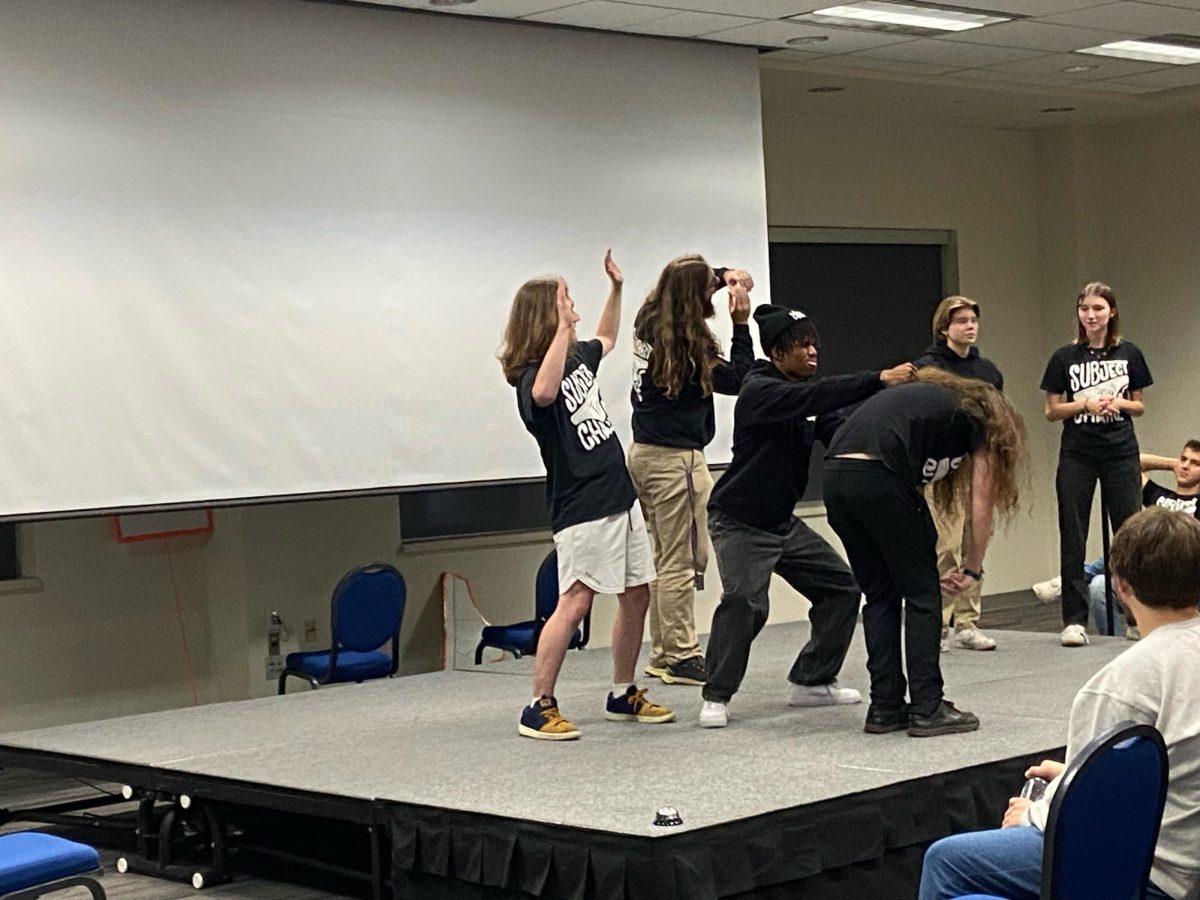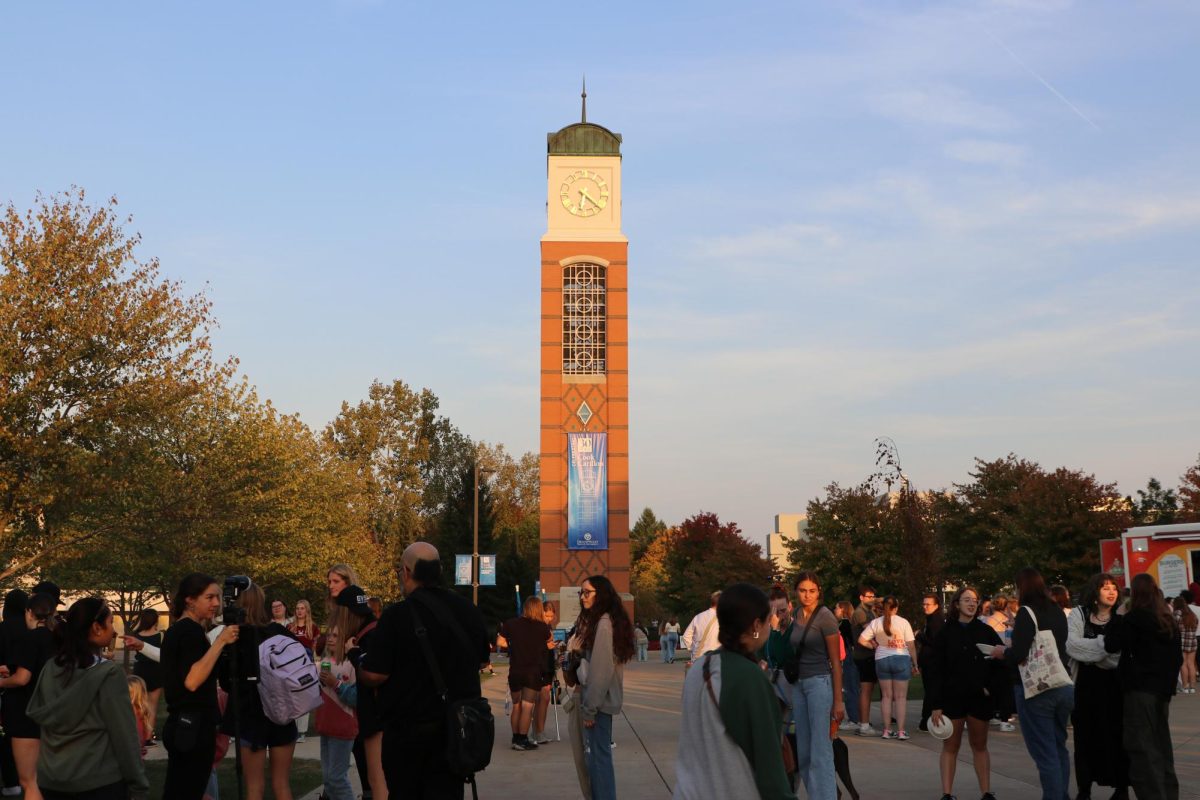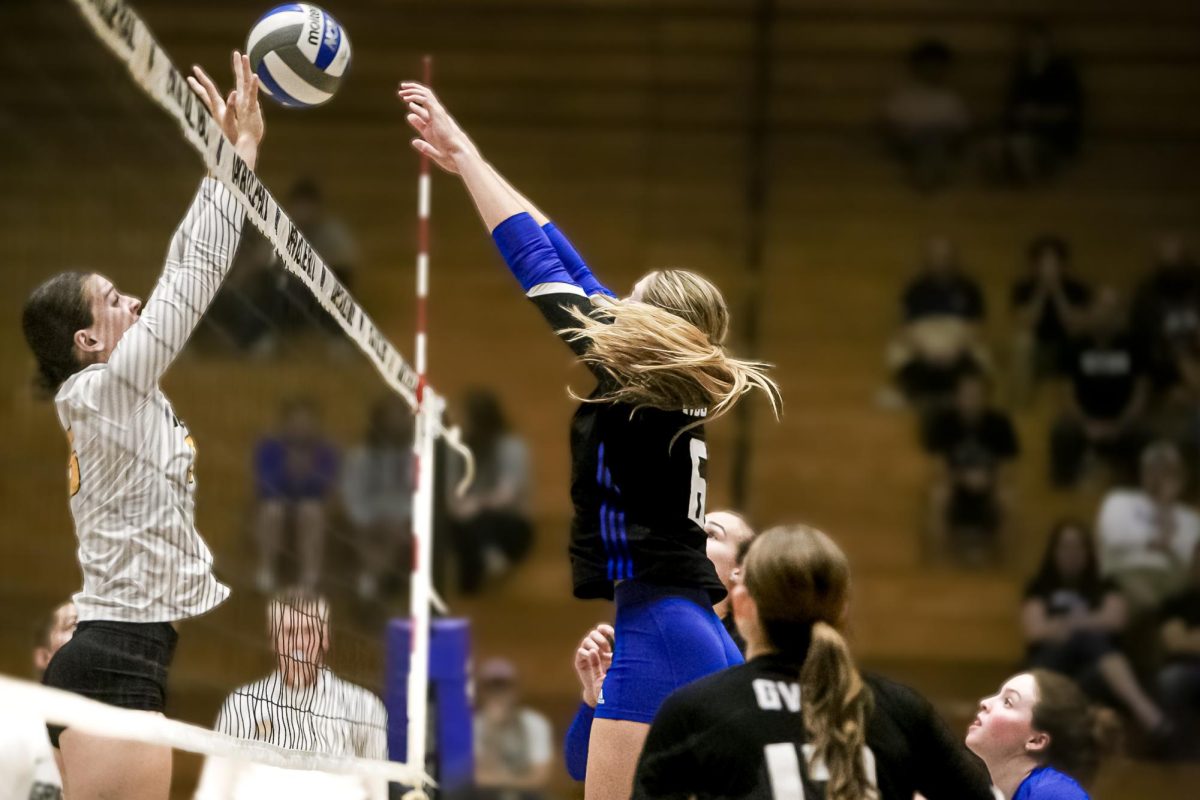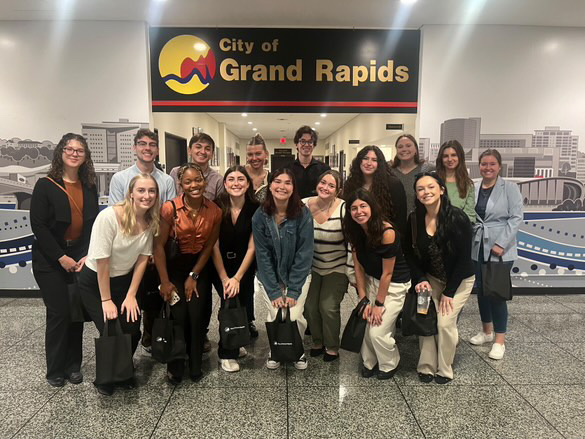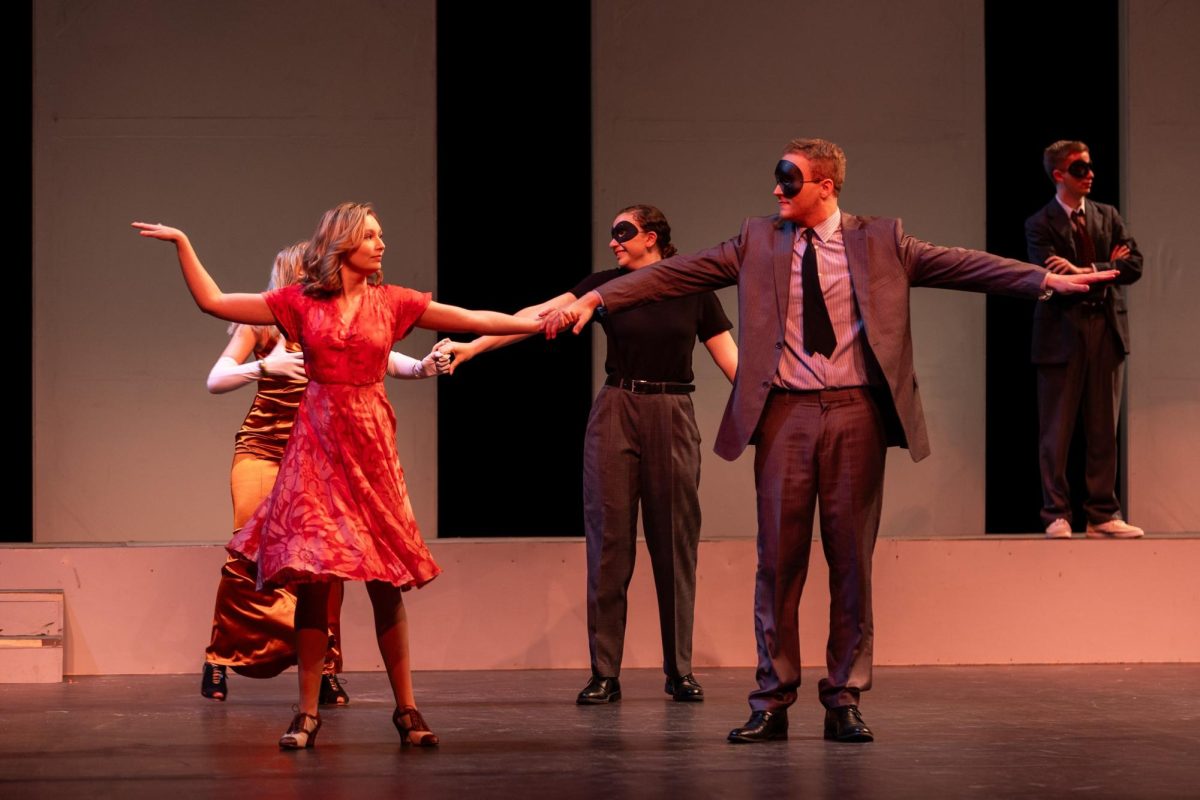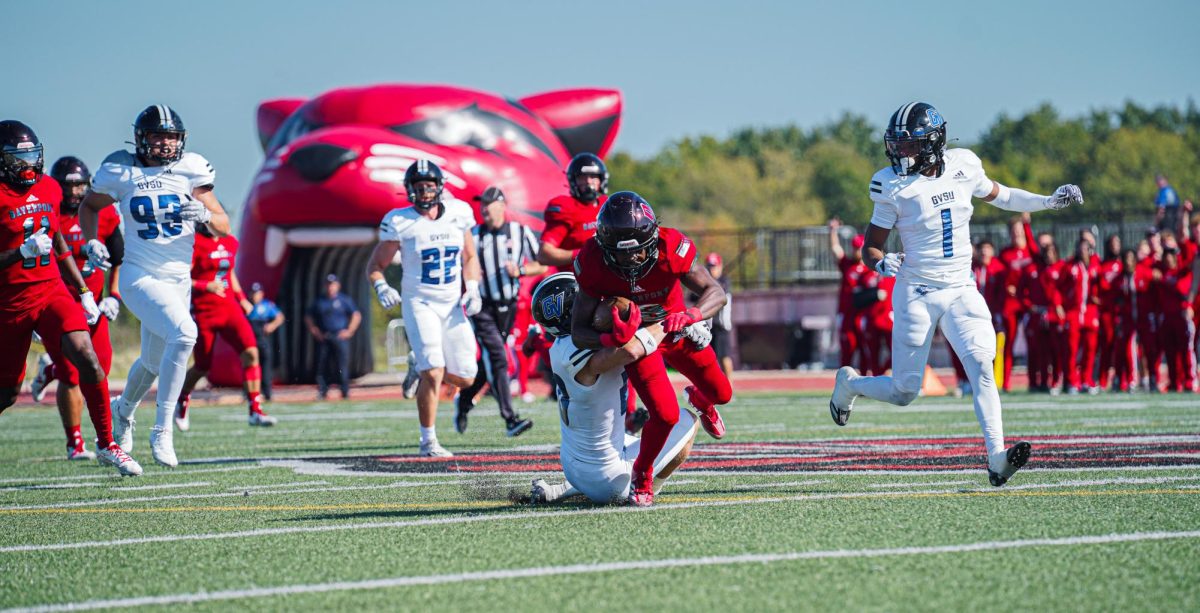Inside the mind of GVSU’s newest offensive coordinator
Jan 23, 2020
Editor-in-Chief’s Note – 1/26/20: After its initial publication, the final two responses were mistakenly removed from this story. It has since been reverted back to its original version, and is a direct transcription of the full, recorded interview. For questions or inquiries, please email Nick Moran at [email protected].
The following is an interview that took place between Lanthorn Sports Editor Kellen Voss and GVSU football’s newly-hired offensive coordinator, Morris Berger. In the interview conducted on Jan. 23, the two discuss Berger’s growth as a coach, lessons he has learned, how he looks to coach the GVSU offense, and a few interesting historical figures he would like to have dinner with.
Kellen Voss: So you said started coaching when you were 19 years old?
Morris Berger: Yeah at a high school, Logan-Rogersville outside of Missouri, I did that for five years, was the offensive coordinator there, won a state championship there.
KV: I saw that was in 2011, how was that experience?
MB: Good, we beat (Dallas Cowboys running back) Ezekiel Elliot, he was a junior that year, and we were fortunate enough to beat him. After that, I became a graduate assistant in 2013 at Missouri Western.
KV: What was that transition like, going from high school to college?
MB: It was really good, I just wanted an opportunity. It was actually on defense, it was a graduate assistant job, made $5,000 a year helping with the defensive backs.
KV: What would you say is the biggest difference between coaching high school kids and coaching college kids?
MB: The development, and the (college kids) becoming a man. High school kids, they’re developing but they’re still more at the kid stage, whereas college kids are basically men. Just the different things you’re talking to them about, preparing for life, preparing for marriage, getting job, whereas high school kids, it’s just preparing for college, dorm life. But football’s football, and I’m thankful I was able to get my play calling experience.
(Speaking of his first collegiate coaching position) Missouri Western was good, we were a solid program, we went 8-3, and it really got me into the college game. I was able to go on the road, learn how to recruit, build relationships with coaches. I was basically a full-time coach at that point.
I had a friend at the University of Missouri who got a job to coach with the Seattle Seahawks, and he said ‘if you’re willing to come off the field and accept a recruiting job at the University of Missouri, I’ll hire you. He got me an interview there, and I got hired in the summer of 2014.
KV: When you were at Missouri, you were there when Drew Lock was there. What was it like seeing him develop the way he did now that he is a pro quarterback with the Denver Broncos?
MB: I was there in his younger years, and his true freshman year was tough for him. The leaps and bounds that I saw in that year was huge. What people don’t realize is he went through a lot of adversity as a true freshman in the SEC. We we’re struggling at times on offense, and then when I left, seeing what he ended up being as the SEC touchdown leader, before Joe Burrow broke it, was cool, and to see him do well in the pros is awesome.
KV: You’ve coached a lot of talented guys that went pro, including Drew Lock, Mason Rudolph, Chris Carson, James Washington, Tre Flowers but is Lock the most talented player you’ve ever coached?
MB: At the quarterback position, yeah, but most talented out of all the positions is a tough one. I’d say Washington. James is a very, very talented and was impressive to watch in college.
KV: From Missouri, you transitioned to Oklahoma State. What experience did you take away from there, being that they were one of the top offenses in college?
MB: That’s where I really felt like every day was ‘offensive coordinator school’. The ability to work under Mike Yurcich (current quarterbacks coach at Ohio State) and see how he operates, I actually told him on the phone the other day, all things that people don’t realize about being an offensive coordinator Sunday-Friday that goes on. Every day I was right there next to him, we spent countless hours and he gave me a role that I really took ahold of. Two years of that and the ability he was able to use the talent we had was sweet while getting experience as an offensive coordinator.
When Berger was at Oklahoma State, the Cowboys led the nation with 389.2 passing yards per game while being second in total yards per game. From there, he had a brief stint as the tight ends coach at Texas State before taking this job as the head offensive coordinator at GVSU.
KV: Coming to Allendale now, how does it feel to be moving up the coaching ranks and have control of an entire offense now?
MB: I’m so appreciative of Coach Mitchell, for him to go out on a limb in a guy that hasn’t called it the college, I’m so humbled by this. I’ve been waiting for this opportunity for a long time, and to have an ability to come to a storied program and just step right in with the great staff we have to get this thing going on offense is amazing.
KV: There were obviously a lot of injuries on the offensive side, but the offense struggled at times. Are you looking to revolutionize this offense in a certain way?
MB: Any time you hire a new coordinator, each coordinator is going to have their own twist. I don’t think it necessarily needs to be revolutionized, what we have to do is realize what made Grand Valley good and also things that have been apart of good offenses that I’ve been apart, and marry the two together, but ultimately when you’re good on offense, you are able to run the football, and we’re going to run the football.”
KV: How have you and your family been adjusting to you living in Allendale and everything?
MB: Good, I just have a girlfriend, and she’ll be here around the middle of February.
KV: Being that you’ve coached in Missouri and Texas, you’re probably not very used to the snow that’s coming up here.
MB: In Missouri we got it, it’s nice to be back in some seasons and get some cold.
KV: So you graduated from Drury with a degree in History, you’re a history guy. If you could have dinner with three historical figures, living or dead, who would they be? And I’m ruling out football figures.
MB: This is probably not going to get a good review, but I’m going to say Adolf Hitler. It was obviously very sad and he had bad motives, but the way he was able to lead was second-to-none. How he rallied a group and a following, I want to know how he did that. Bad intentions of course, but you can’t deny he wasn’t a great leader.
KV: The way he was able to get people to rally around him was crazy.
MB: Yeah, that’s definitely one. You have to go JFK, his experience with the country and being that he was a good president and everything. And this might sound crazy, but Christopher Columbus, the ability to go on the journey he was on and his emotion into the unknown. Think about putting yourself in the setting of that unknown, and then to take it all in as you arrive is crazy.



